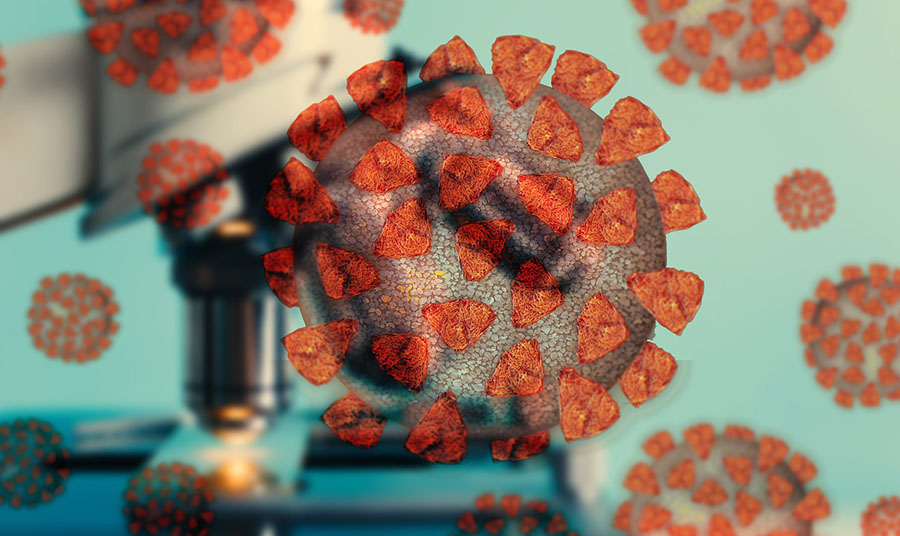The Life Sciences Report: What is the focus of your company, RXi Pharmaceuticals Corporation (RXII:NASDAQ)?
Geert Cauwenbergh: The major focus of our company is development of therapeutics based on a proprietary platform of RNAi—RNA interference—as a way to reduce the level of upregulated proteins that play a role in disease. The areas that we have selected to work in at this point are dermatology and ophthalmology.
We own our self-delivering RNAi platform, and we are actively working to develop that into transformational treatments that can be used in these two areas. We also will provide licenses to other biotech companies that are interested in using our technology platform for developments in their therapeutic areas of interest.
In addition to the interference RNA technology, we have a topical immunotherapy agent that can also be used in diseases that are poorly covered, like cutaneous metastases of malignant melanoma, or for the treatment for alopecia areata (hair loss caused by an autoimmune disorder), for which there is no treatment available today.
TLSR: Can you describe the different therapies?
GC: We currently don't have any therapies that are commercially available, but we have therapies in development. The first is called RXI-109. It is an RNAi compound derived from our self-delivering RNAi platform that down-regulates the gene that produces connective tissue growth factor. This growth factor is essential in wound healing, but too much of this protein can result in hypertrophic scars, elevated scars, or keloids. RXI-109 is being developed to block the protein and reduce the formation of bad scars.
"We own our self-delivering RNAi platform, and we are actively working to develop that into transformational treatments."
The second product in development is a small molecule called Samcyprone™, a topical immunotherapy. It is known that the active ingredient in Samcyprone™ works; that has been published in the literature. It mobilizes the T cells in the body—in the immune system—to rush into the treated area and clean out the disease. What Samcyprone™ adds is a topical formulation for better uptake and reduced side effects. Our program with Samcyprone™ is focused on warts, alopecia areata and cutaneous metastases of malignant melanoma.
We also have an ocular franchise using RXI-109, with a focus on retinal scarring. In the future, we might also focus on corneal scarring. We are very close to filing our investigational new drug application with the FDA so that we can start clinical trials in retinal scarring.
TLSR: What is the market potential for both the dermatological and ophthalmological applications?
GC: Looking at the market for scarring, think about all the surgeries being done in the U.S., and the risk that bad scars will develop. That market, in the U.S. alone, is over $1 billion ($1B). Looking at Samcyprone™, warts are also a big indication in the U.S., a market worth $500M today. If you add the two other indications—alopecia areata and cutaneous metastases of melanoma—you also end up with U.S. markets of close to $1B.
In ophthalmology, the U.S. market for age-related macular degeneration in 2015 will be approximately $2B, and scarring occurs in about half of these patients within two years of initiating treatment with standard therapies. You could see how a therapeutic to block retinal scarring and preserve vision could result in a >$1B market. In terms of global markets, you can multiply the U.S. market by two. Across all our products in development, we are talking a potential global market of more than $5B.
TLSR: What is unique or different about RXi?
GC: A lot of companies work with interference RNA, but those companies need delivery vehicles to get their RNAi compounds into the cells. Usually, interference RNA is made in the cell, by the cell, for the cell. In certain situations with diseases, interference RNA can be introduced to the cell to help reduce the level of the disease-causing protein. In our case, we are applying our RNAi compounds locally, into the skin and eye, and as a result of our proprietary chemistry, they are taken up efficiently by the cells. Other companies use a variety of delivery vehicles, which often result in issues such as toxicity that can negatively affect cell proliferation, growth and viability.
Our system, with our self-delivering RNAi—we call it sd-rxRNA—gets into the cell without needing a vehicle. We don't have the drawbacks associated with other delivery vehicles.
TLSR: What are future plans for the company?
GC: The company wants to capitalize on its unique platform. It's an intellectual property (IP) platform that we own and control, and that ownership, from a value point of view, is very significant. We have selected dermatology and ophthalmology as our fields of focus, and we plan to develop commercial products and a commercial operation behind those products.
"Shareholders should be aware that there is vast potential for this technology platform. "
But there are fields in medicine where we do not currently participate. That doesn't mean, however, that our platform cannot be used in those fields. We plan to open up, under licensing of course, our IP to help other companies develop transformational products in their therapeutic spaces.
TLSR: What is the message you'd like to give to shareholders?
GC: First of all, shareholders should be aware that we own our technology platform. Shareholders should also be aware that there is vast potential for this technology platform. This is basically the start of the RNAi age in medicine. First we had small molecules, and then antibodies were developed. The development of antisense followed, the first one of which was recently FDA approved. RNA interference has had its ups and downs, especially in the beginning, but it's clear that it is becoming much more mainstream. Because of our self-delivery platform, we will be able to play a unique role in making RNAi compounds even more mainstream. There is a reasonable likelihood that, if everything works out fine, 10–15 years from now RXi Pharmaceuticals will be a leader in the biotechnology space, with a broad spectrum of dermatologic and ophthalmic products.
TLSR: What excites you about RXi Pharmaceuticals?
GC: That's an interesting question—there are many things. I'll focus on three. The first is the possibility that we have, with our technology platform, the ability to address diseases that today are not being addressed. We can really make a change in the lives of people. This is a transformational technology, and that excites me.
Second—and this is totally different—are the people I'm working with. RXi is a small company today, with 15 people. It's like a small family—well, maybe 15 is a big family. They are extremely professional. They are among the best in the world in their fields. They are also very motivated, hard-working and, last but not least, they are an inspiration to each other and to me. And that excites me.
"We are focused on dermatology and ophthalmology, two big, multibillion-dollar markets."
The last thing that excites me—and this doesn't happen too often in the life of a person—is the fact that we have had the opportunity to interact with a Nobel laureate, Dr. Craig Mello. He is a co-recipient of the Nobel Prize for the discovery of the interference RNA mechanism in 2006. Dr. Mello has been judged by the world to have contributed substantially to the advancement of humankind—in this case in the field of medicine. Being able to assist such an individual, who has been able to come up with a unique discovery, and being able to help turn that into something practical and useful, is a unique opportunity.
TLSR: What are the three key points about RXi that you would like investors to remember?
GC: The three key points are straightforward. Number one: We are an RNAi company. We are unique in that arena because we have a self-delivery platform, which opens the spectrum of what we can do with RNAi substantially.
Number two: We are focused on dermatology and ophthalmology, two big, multibillion-dollar markets.
Number three: Since we are sitting on a transformational technology, we are quite willing to, under a license from RXi, open our platform up to other therapeutic companies in the biotech space for use in their therapeutic areas of interest.
TLSR: Thanks for your time.
Dr. Geert Cauwenbergh was appointed president and CEO of RXi Pharmaceuticals Corporation in April 2012. Prior to joining RXi, Dr. Cauwenbergh served as chairman and CEO of Barrier Therapeutics Inc., a publicly traded biopharmaceutical company he founded in 2001 that focused on dermatology drug development. Barrier was acquired by Stiefel Laboratories Inc. in 2008. Prior to founding Barrier, Dr. Cauwenbergh held a number of ascending senior management positions at Johnson & Johnson, where he was employed for 23 years. As Vice President, Research and Development for Johnson & Johnson's Skin Research Center, he was responsible for the worldwide research and development of all skin care products for Johnson and Johnson's consumer companies. He is a member of the board of directors of Phosphagenics and Moberg Pharmaceuticals. In 2005, Dr. Cauwenbergh was inducted into the New Jersey High-Tech Hall of Fame, and, from 2009 to 2010, he served as chairman of the board of trustees of BioNJ. He has authored more than 100 publications and has been a guest editor for a number of books in mycology and infectious diseases. Dr. Cauwenbergh received his doctorate in medical sciences from the Catholic University of Leuven, Faculty of Medicine (Belgium), where he also completed his masters and undergraduate work.
Read what other experts are saying about:
Want to read more Life Sciences Report interviews like this? Sign up for our free e-newsletter, and you'll learn when new articles have been published. To see a list of recent interviews with industry analysts and commentators, visit our Interviews page.
DISCLOSURE:
1) BTV conducted this interview for Streetwise Reports LLC, publisher of The Gold Report, The Energy Report and The Life Sciences Report.
2) RXi Pharmaceuticals Corp. paid Streetwise Reports to conduct, produce and distribute the interview.
3) Geert Cauwenbergh had final approval of the content and is wholly responsible for the validity of the statements. Opinions expressed are the opinions of Geert Cauwenbergh and not of Streetwise Reports or its officers.
4) The interview does not constitute investment advice. Each reader is encouraged to consult with his or her individual financial professional and any action a reader takes as a result of information presented here is his or her own responsibility. By opening this page, each reader accepts and agrees to Streetwise Reports' terms of use and full legal disclaimer.
5) From time to time, Streetwise Reports LLC and its directors, officers, employees or members of their families, as well as persons interviewed for articles and interviews on the site, may have a long or short position in securities mentioned. Directors, officers, employees or members of their families are prohibited from making purchases and/or sales of those securities in the open market or otherwise during the up-to-four-week interval from the time of the interview until after it publishes.



























































